- Home
- Patrick Robinson
The Shark Mutiny Page 11
The Shark Mutiny Read online
Page 11
The phone went down before Lt. Ramshawe could even answer. And before he could gather his wits, his other phone went, and Jane was on the line, telling him how clever he was, and would he be able to have dinner tonight with her, and her parents, at the embassy.
“You seen the television?” he asked her.
“Darned right I did. I was watching it with my dad. He said immediately the Iranians had mined the area, just as they’d been threatening to do.
“I told him that was my considered opinion, too. Told him I’d suspected something like that since the Bronco went up last Friday…. He gave me a real old-fashioned look.”
“I should think he did. But he doesn’t know about the phone call, does he—the one from his private line?”
“No. At least he hasn’t said anything. Anyway, are you coming tonight? He’s got some Aussie sailors coming, yachtsmen, America’s Cup guys. Might be fun.”
“Yup. I’ll be there. ’Bout seven.”
1300. Same day. The Oval Office.
Admiral Morgan recounted the events in the gulf swiftly and with no elaboration.
The President sat impassively, and asked curtly, “Your recommendations?”
“Sir, I have already ordered the Constellation CVBG south from the Iraqi coast, and the John C. Stennis Group is closing the strait immediately from the Arabian Sea. Our third Group in the area, the Harry S Truman’s, should clear Diego Garcia by tomorrow morning and head north. I’ve arranged for the Indian Navy to begin a hunt-and-sweep operation with their Pondicherrys as soon as they can get there. Right now they’re on their way from Bombay, probably be in Hormuz waters by tomorrow morning our time…. I had them leave on Sunday.”
“Do you think there could be full-scale hostilities, Admiral? I don’t want to get drawn into an unpopular war with Iran. Dead American sailors don’t play well politically.”
“Sir, this is probably the height of our national interest. Do you have any idea what might happen if the gulf had to be closed off for a month?”
“I cannot say I have given it deep thought, Admiral. But I am much more concerned about sitting in this chair being universally blamed for death, destruction and burned Americans. Because that’s what happens when you start flexing the muscles of big warships.”
“If we don’t start flexing them, sir, the entire world oil supply could go right up the chute. And if the lights went out in the USA, you’d get yourself a very special place in history. Especially if you had refused to act in the Persian Gulf in the face of hostility and threats from Iran and their buddies in Beijing.”
“As usual, Admiral, you have my best interests at heart.” There was an edge of sarcasm in the President’s voice.
“Perhaps not, sir. But I always have the best interests of this nation at heart.”
“Then proceed as you think fit, Admiral. You always do, anyway…. Just let me know if I need to make a speech, will you? And perhaps Harcourt should make some kind of diplomatic overtures to the Chinese and the Iranians?”
“Two reasons not to, sir. One, it will alert the entire world to a crisis we may be able to strangle at birth. Two, they’ll just deny everything anyway, and probably be very amused at our concern. ’Specially if they’ve done it, which I already know they have.”
Arnold Morgan did not wait for a reply. He just turned on his heel and left, muttering to himself, “What a lightweight. What a goddamned lightweight. In five years he’s gone from being a damned good president to a self-serving wimp.”
By late afternoon every evening newspaper in the country was speculating about the possibility of a minefield in the Strait of Hormuz. The longtime threat of the Ayatollahs was uppermost in the mind of every defense correspondent in every corner of the media.
Television networks waited with scarcely contained excitement for the statement from the U.S. Navy. But when it came it was stark and noncommittal, precisely the way Arnold Morgan had instructed.
The CNO had declined a press conference and issued his written statement, deliberately late, at 21.30, through the main wire services, carefully avoiding anything that would suggest panic to either the Chinese or the Iranians.
It read: “The United States Navy has noted the three tanker incidents in the Strait of Hormuz during the last four days. In particular we noted that two of them burned, and one suffered an apparent explosion that released large quantities of oil into the sea. In addition, we noted that all three incidents occurred in a narrow seaway between the countries of Oman and Iran.
“We have been in contact with our major allies in the area and have agreed to support them in their efforts to ascertain the causes of these incidents, and to discover whether there might be a link between them.
“However, it is too early to arrive at any conclusions. We expect at least one of our aircraft carriers and her escorts to arrive on station in the strait in the next 24 hours. Another U.S. CVBG is currently steaming toward the strait from the Arabian Sea.
“In company with several other industrial nations, we are extremely concerned to ensure the continued free passage of the world’s fuel tankers through the strait both into, and out of, the Gulf of Iran.
“We have assured our allies of our continued assistance, should it become necessary to rectify any wrongdoing by any nation in these peaceful trading waters upon which so many countries depend.”
It was signed, “Admiral Alan Dixon, Chief of United States Naval Operations.”
It was good, but not good enough. Four East Coast tabloid dailies were already setting headlines like: MINEFIELD TERROR IN THE GULF…TANKERS BLOWN UP IN GULF MINEFIELD. IRAN’S MINES BLAST U.S. TANKERS.
All through the evening the television networks developed their stories, bringing in experts to discourse on the dangers in that part of the Middle East; recounting Iranian threats over the years; debating the possible involvement of China; discussing the consequences of an oil blockade.
By midnight, the President had called an emergency cabinet meeting in President Reagan’s old Situation Room in the West Wing. And there the major brains in the Administration attemped to walk the tightrope between being prepared militarily and creating mass panic at the gas pumps.
Arnold Morgan, whose voice would be heard the loudest, since he had been effectively on the case since Friday, was, uncharacteristically, urging caution. He wanted the CVBG in the strait to protect and assist the Indian Navy’s minesweepers. However, he saw no real advantage in making overt threats to either the Iranian or Chinese navies, save to make them absolutely aware that if any of their warships attempted to interfere, they would be sunk forthwith by U.S. Naval firepower.
As far as the National Security Adviser was concerned, the U.S. Navy had the matter well in hand. And with the strait now well and truly off-limits to all world shipping, there seemed little point in looking for trouble until the Indians’ Pondicherrys had begun work clearing the mines. In order to clear a three-mile-wide safe passage on the Omani side, Admiral Morgan estimated they might have to sweep 40 of them, which might take several days beginning Tuesday night (local time).
Minesweeping was a thoroughly dangerous business, and it had to be conducted and executed with extreme care. The President wanted to know how it was done, and Arnold Morgan suggested that Admiral Dixon enlighten everyone.
“Sir,” said the CNO, “when you locate the mine, it’s going to be ten or twelve feet below the surface, attached by its cable to a mooring on the floor of the ocean. Basically it’s buoyant, and it’s trying to float up to the surface, but is held down by its own cable.
“Well, you sweep them by towing cutting cables from the minesweeper, pulled down to the right depth and out from the side by an otter board. When the sweeper’s cable snags a mine’s mooring line, it keeps moving until both cable and line are taut. Then the cutter severs the line, allowing the mine to float to the surface. There it can be detonated by small-arms fire from a safe distance. They’re easy when they’re on the surface, but of course imp
ossible when you can’t see them. However many times you’ve done it, you’re always astounded by the size of the explosion.”
“Hey, that’s pretty neat,” said the President.
“And pretty time-consuming,” replied the Admiral.
“How many sweepers are the Indians bringing?”
“Six,” replied Admiral Morgan. “That’ll help speed things up.”
“Cost?” asked the Secretary of Defense, Bob MacPherson, predictably.
“I told the Indian Navy Chief that we would arrange for all affected nations to share the costs. Between us, the U.K., the Japanese, Germans, France and some of the Middle East exporters, it’ll come out as peanuts.”
“No problem,” said MacPherson.
“Look, Arnold,” said the President, using his adviser’s first name for the first time in months, “I know you want to play this down right now. But I’m not sure we shouldn’t go straight into Beijing and demand to know if they have played any part in this whatsoever.”
“Sir, they will simply deny any knowledge, whatever we say…and that brings me to a very serious point.”
“It does?”
“Yessir. From our observations it looks very much as if the mines were transported to Iran in Chinese warships. And now we have a situation where, for the next couple of weeks, the Iranians are going to get pretty rich. And to an extent so are the Chinese. They seem to have a way through the minefield, in Iranian national waters, and the price of oil futures is probably going to forty dollars a barrel for West Texas Intermediate on NYMEX and the same for Brent Crude on the London market.
“However, I completely fail to see what the Chinese are doing. How could it possibly be worth it?”
“Maybe they just want to show us they can be real world players in the oil game with their new Kazakhstan pipeline,” offered Harcourt Travis.
“Maybe,” replied Arnold Morgan. “But that’s a hell of a dangerous card to play for such a slim moral victory. Christ, for all they know, we might get seriously pissed off with ’em. It just doesn’t make any sense to me.”
“Well, Admiral, perhaps the political minds at the table can offer something that may have escaped you?”
“Beats me, sir,” said Harcourt.
“All I know is this,” said the National Security Adviser. “The Chinese are very devious, very patient and utterly insincere when it suits them. What they are not is very stupid. And, so far, everything in the Strait of Hormuz is plain stupid. What the hell are they doing getting mixed up in something like this?”
“I guess they have their reasons,” said the President. “But even more worrisome is what the hell are the Iranians playing at? I know they believe the Gulf of Iran is, by its very name, theirs by rights, and that the West has no real business in there at all. But they also know that if they attempt a blockade of the gulf, we’ll dismantle it, and probably them with it. They’re not stupid, so what are they doing?”
“Six weeks ago, I could not have answered that question, sir,” said Arnold Morgan. “But things are coming to light. And again we are seeing a new rise in Muslim fundamentalism. Again the balance of political opinion is swaying against the West, and every damn time that happens you get a new militant resurgence in Iran. All those pictures we got from Tehran a month ago…the street riots…the new calls for elections. They were all shouting for the same thing—total separation from the West, the right to their own oil, the right to make the gulf private…the enduring vision of Islamic world domination.
“It’s a phase, but it’s a problem. Meanwhile, the present blockade of the Iranian Gulf is a giant-sized PITA…pain-in-the-ass, that is. We gotta get it cleared or we’re looking at world economic chaos.”
Tuesday morning. May 1.
PLAN HQ. Beijing.
Admiral Zhang Yushu had just walked into his new office, where his Navy C-in-C, Admiral Zu Jicai, was already waiting.
“And what do the satellites tell us today?” he asked.
“Excellent news all around, Yushu. Two American CVBGs are closing the strait. The Harry Truman is plainly preparing to leave Diego Garcia today, and the U.S. carrier John F. Kennedy is under way, heading west out of Pearl Harbor.”
“That leaves just the Ronald Reagan Group still in San Diego, correct?”
“Yessir, and all the signs are that she is accelerating her overhaul, planning to leave in the next few weeks. There is truly the most thunderous commotion in the United States—every newspaper, every television network. They’re becoming hysterical about this threat to their national interest in the Strait of Hormuz.”
“Perhaps we should offer to sell them some very fine Russian oil, direct from our refinery in Iran…very cheap…fifty dollars a barrel…ha ha ha!”
“Yushu, you are a hard man. Although I admit the prospect has great appeal, I would counsel silence. Say nothing. Do nothing. See nothing.”
“Meanwhile, to more important matters, Jicai. Are these military estimates accurate? We still have sea-lift capacity for only twelve thousand troops? And two hundred fifty main battle tanks?”
“Yessir. But the turnaround time for our amphibians will be short.”
“Are the ships on their way back from the Indian Ocean?”
“Yessir.”
“Excellent. That’s the three guided-missile frigates, plus two Kilos?”
“Correct. They’re all on their way home, sir. And as you know, the destroyer is making its way back toward Bandar Abbas, just as a warning to the USA…that we don’t want them to attack our friends in Iran, under any circumstances.”
“Ah, but it’s a mission well achieved. Eh, my Jicai?”
“In the ancient tradition of the great Admiral Zheng He, sir. Just as you always dreamed.”
“And such a dream, my Jicai. Remember the words we all learned, the words written by the immortal Admiral five hundred years ago…And we have set eyes on Barbarian regions far away…while our sails, loftily unfurled like clouds, day and night, continued their course as rapidly as a star, traversing those savage waves….”
Zhang paused for just a moment. And then he said quietly, “That’s our tradition…and it’s only been dormant. Not dead. We will rise to rule those seas again.”
0955 (local). Tuesday, May 1.
The International Petroleum Exchange.
London, England.
No day in the entire 26-year history of Europe’s principal oil futures trading floor had ever been awaited with more dread, trepidation and alarm. Here in the shadow of the Tower of London, bounded by streets with echoing names like Thomas More, hard by the waters of historic St. Katherine’s Dock, the industrial world’s fate hung in the balance.
Five hours before New York’s NYMEX oil trading gets under way on Wall Street, the London Exchange opens for business, setting the world’s pricing benchmark for the day, maybe the month. The commodity is Brent Crude Futures, and the price per barrel of North Sea oil is the one upon which the major international traders and investors are prepared to speculate.
If the traders think there’s likely to be a glut of oil in the foreseeable future, the price may go below $15, trading narrowly, varying by just a few cents either way. Any sign of a shortage, and the price may rise to around $30. A serious shortage can cause this swerving, volatile market to lose all sense of caution. When Iraq invaded Kuwait back in 1990, everyone thought the roof had caved in, and on one lunatic day at the International Petroleum Exchange (IPE), Brent Crude hit $70 a barrel.
Today the atmosphere was fraught. Captain Tex Packard’s ship was still on fire in the strait, and in London nervous representatives of the big oil producers, refiners, shippers, distributors and marketers mingled with other major users. Brokers representing the power generators, airlines, truck fleet operators, chemical companies and even supermarkets were on tenterhooks. The world’s most eminent money men from houses like Morgan Stanley were massed along with everyone else on the packed hexagonal-shaped trading floor, with its tiered pits,
video surveillance and colossal security.
The previous night, Brent Crude had closed at $28 a barrel, up three bucks. And West Texas Intermediate in New York was tagged at a few cents below. Today cell phones were running up massive bills connecting the U.S. traders with London, long before the opening bell at NYMEX. What mattered right now was the opening bell in London, and the traders, wearing their identifying colored jackets, red, yellow, green or blue, thronged above the pits as the clock ticked on to 10 o’clock.
Bang on time it rang, signaling the floor was open for business, trading at first in natural-gas futures, the prices for which would explode before this day was done.
One minute went by, and then the clock hit 10:02 and the second opening bell rang sharp and loud, for the initial trades of Brent Crude Futures, the world pricing benchmark; at which point, on this day, the entire system of international oil commodity trading went berserk.
Pandemonium broke out as buyers yelled “PLUS TWO…PLUS TWO!” But these weren’t cents, as in the regular cries of “BRENT PLUS TWO!” These were whole dollars. Thirty, then $32, then $35, then $40. Bedrock prices for a barrel of oil had jumped 33 percent in nine minutes.
“Mother of God!” breathed the broker for Shell. And the trader for a New York Bank roared “PLUS FIVE…PLUS FIVE FOR 500,000….” Which pegged the price of Brent Crude Futures at an astounding $45 a barrel.
Dealers left behind in the stampede for the best prices surged forward as a rumor swept the pits that the price was going to $70. Brokers for the big finance houses huddled together, uncertain whether to chase the price up further, or whether to wait for the retreat some thought might not come. At least not on this day.
Snatches of conversation fired the desperate atmosphere. Yelling, classless British voices from London, interspersed with louder American tones…. “Jesus H. Christ! This can’t last…Bullshit it can’t…they’ve just closed the fucking Gulf of Iran…. It’s only three ships, for chrissakes! It doesn’t matter a flying fuck if it’s only one…right here we’re talking fucking minefields! That’s one step from global war…the U.S. Navy’s moving THREE aircraft carriers into the strait…you think this market’s fake? Forget it. There might be no more oil out of the gulf for six months.”

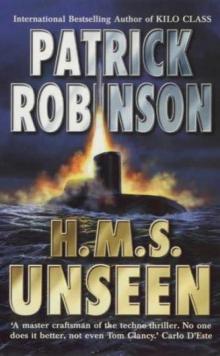 H.M.S. Unseen am-3
H.M.S. Unseen am-3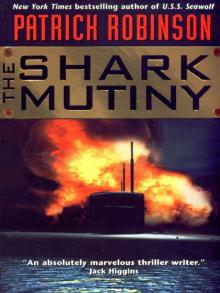 The Shark Mutiny (2001)
The Shark Mutiny (2001)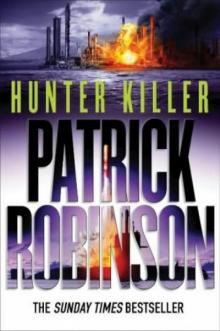 Hunter Killer am-8
Hunter Killer am-8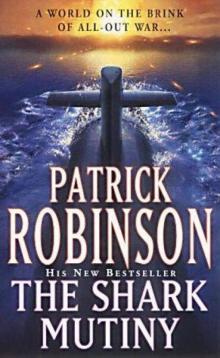 The Shark Mutiny am-5
The Shark Mutiny am-5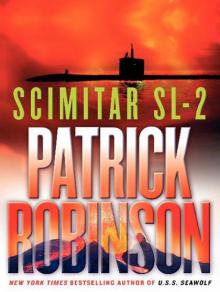 Scimitar SL-2
Scimitar SL-2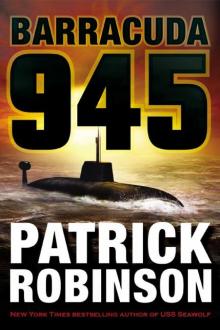 Barracuda 945 am-6
Barracuda 945 am-6 Hunter Killer
Hunter Killer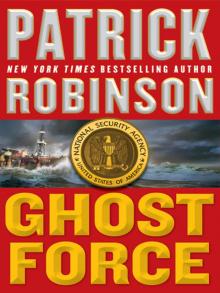 Ghost Force
Ghost Force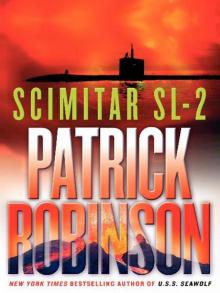 Scimitar SL-2 (2004)
Scimitar SL-2 (2004)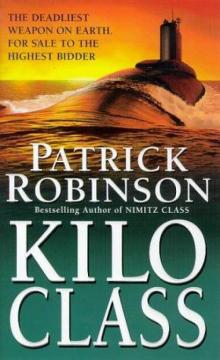 Kilo Class am-2
Kilo Class am-2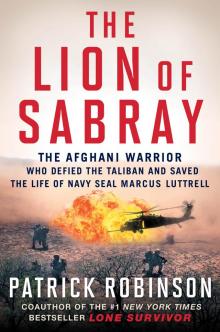 The Lion of Sabray
The Lion of Sabray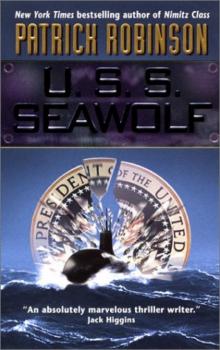 U.S.S. Seawolf am-4
U.S.S. Seawolf am-4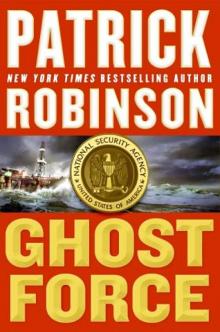 Ghost Force am-9
Ghost Force am-9 To the Death am-10
To the Death am-10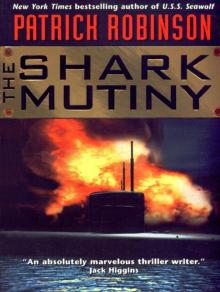 The Shark Mutiny
The Shark Mutiny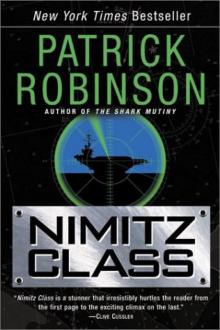 Nimitz Class am-1
Nimitz Class am-1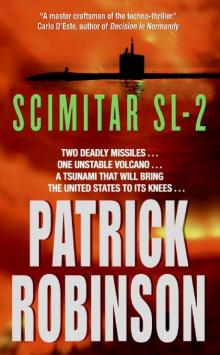 Scimitar SL-2 am-7
Scimitar SL-2 am-7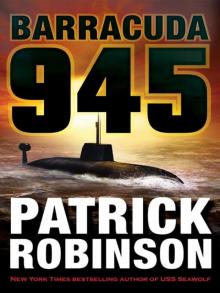 Barracuda 945
Barracuda 945 Intercept
Intercept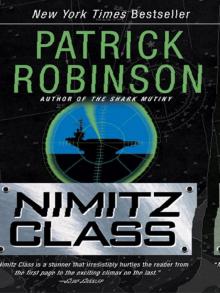 Nimitz Class (1997)
Nimitz Class (1997)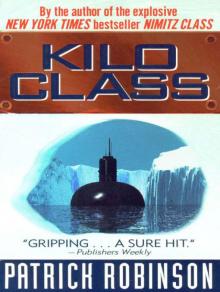 Kilo Class
Kilo Class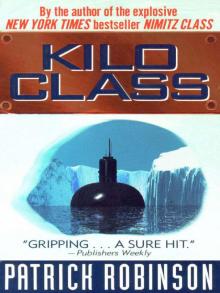 Kilo Class (1998)
Kilo Class (1998) Diamondhead
Diamondhead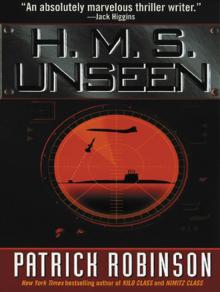 H.M.S. Unseen
H.M.S. Unseen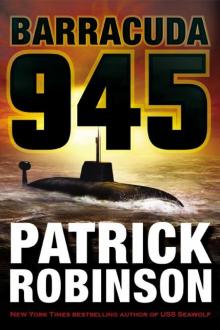 Barracuda 945 (2003)
Barracuda 945 (2003)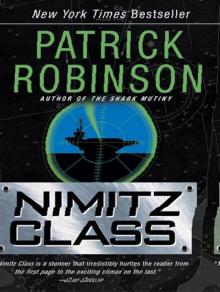 Nimitz Class
Nimitz Class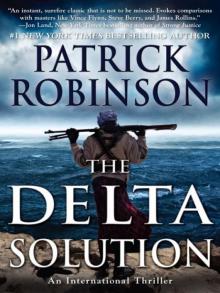 The Delta Solution
The Delta Solution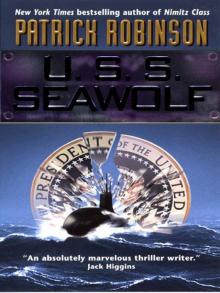 U.S.S. Seawolf
U.S.S. Seawolf